![]()
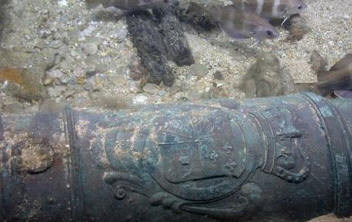 |
Odyssey Marine Exploration discovered the wreck of the HMS Victory |
| 2009 | |
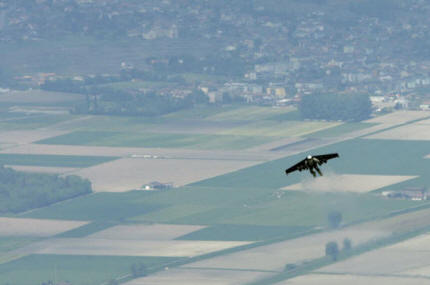 |
Yves Rossy flew his jet engine-powered wing in the first public demonstration before the world's press |
| May 14, 2008 | |
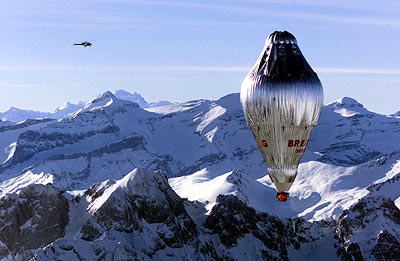 |
the first nonstop flight around the world by balloon |
| March 21, 1999 | |
|
○
|
David Hempleman-Adams became the first person to complete the Explorers Grand Slam in when he conquered the North and South Poles and scaled the highest mountain in each of seven continents |
| 1998 | |
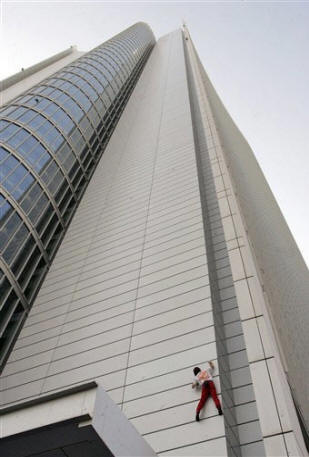 |
Alain Robert |
|
○
|
the Degree Confluence Project |
| 1996 | |
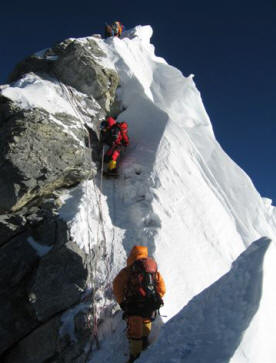 |
the Everest Disaster |
| May 11, 1996 | |
|
○
|
Outside |
| 1978 | |
|
○
|
Reinhold Messner and Peter Habeler ascended Mount Everest without supplementary oxygen |
| 1978 | |
|
○
|
Mountain Equipment Co-op |
| 1971 | |
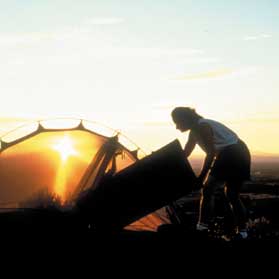 |
Therm-a-Rest |
| early 1970s | |
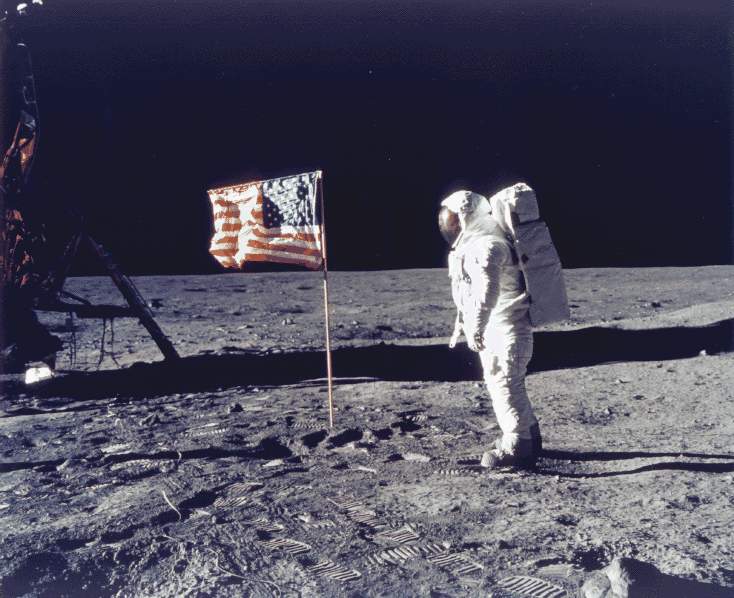 |
Apollo 11 was the first manned mission to land on the Moon |
| July 20, 1969 | |
|
○
|
the Sunday Times Golden Globe Race |
| 1968-1969 | |
|
○
|
NOLS |
| 1965 | |
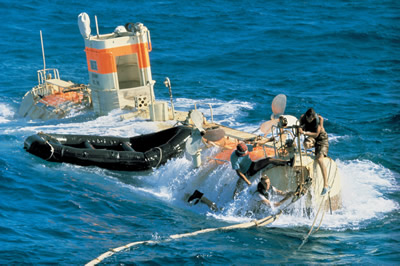 |
Jacques Piccard and Don Walsh reached the ocean floor in the Challenger Deep with his bathyscaphe Trieste. The depth of the descent was measured at 10,916 meters |
| January 23, 1960 | |
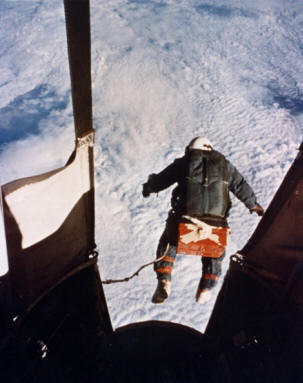 |
Project Excelsior |
| 1959-1960 | |
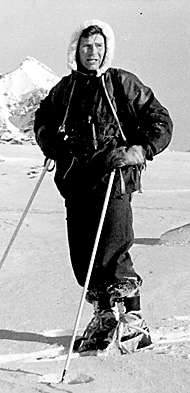 |
Vivian Fuchs completed the first overland crossing of Antarctica |
| March 2, 1958 | |
|
○
|
the International Geophysical Year |
| 1957-1958 | |
|
○
|
the Commonwealth Trans-Antarctic Expedition |
| 1955-1958 | |
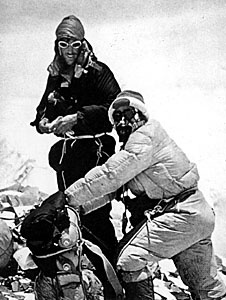 |
Edmund Hillary and Tenzing Norgay reached the summit of Mount Everest |
| May 29, 1953 | |
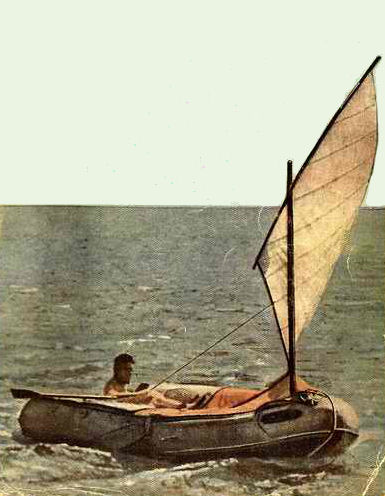 |
Alain Bombard sailed in an inflatable boat with almost no provisions across the Atlantic |
| 1952 | |
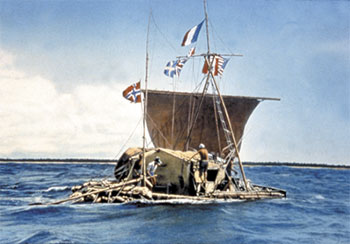 |
the Kon-Tiki Expedition |
| 1947 | |
 |
Space exploration |
| 1946 | |
|
○
|
Backpacking |
|
○
|
scuba devices |
| 1943 | |
|
○
|
Outward Bound |
| 1941 | |
|
○
|
REI |
| 1938 | |
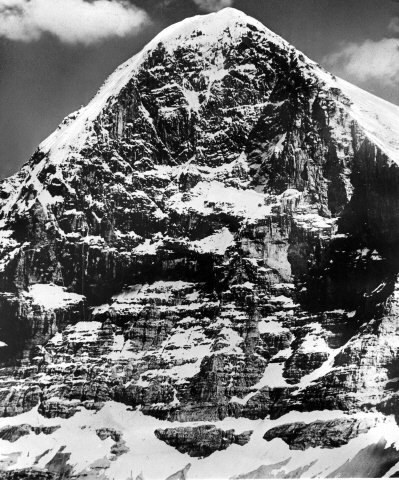 |
the Eiger-Nordwand was first climbed by Anderl Heckmair, Ludwig Vörg, Heinrich Harrer and Fritz Kasparek |
| July 24, 1938 | |
|
○
|
the Second Polar Year |
| 1932-1933 | |
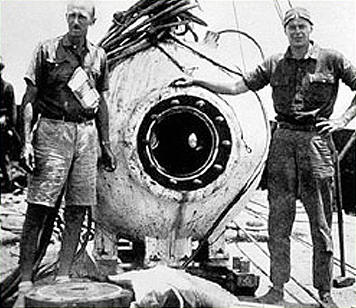 |
William Beebe and Otis Barton descended 183m off Nonsuch Island in Bermuda, where in 1934 they made a record descent of 923m |
| 1930 | |
|
○
|
Alexandra David-Néel visited the to foreigners forbidden city of Tibet |
| 1924 | |
 |
George Mallory and Andrew Irvine never returned to high camp after their attempt to climb to the top of Mount Everest via the North Col route |
| June 8, 1924 | |
|
○
|
oxygen masks for high altitude climbing |
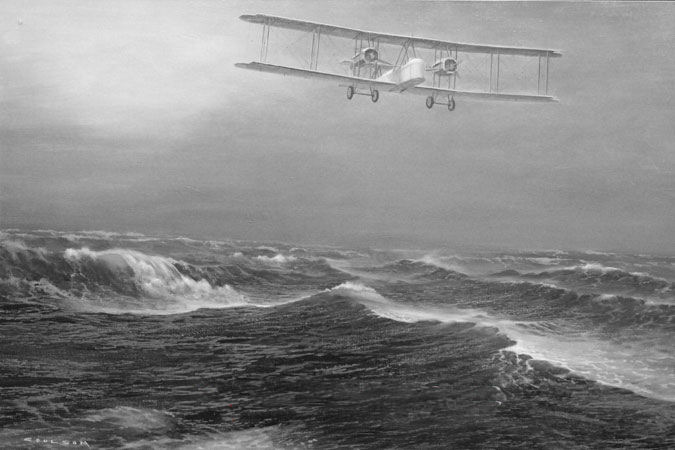 |
Alcock and Brown made the first non-stop flight across the Atlantic Ocean |
| June 1919 | |
 |
the Imperial Trans-Antarctic Expedition |
| 1914-1916 | |
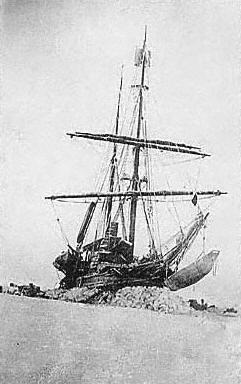 |
the Karluk Expedition |
| 1913-1914 | |
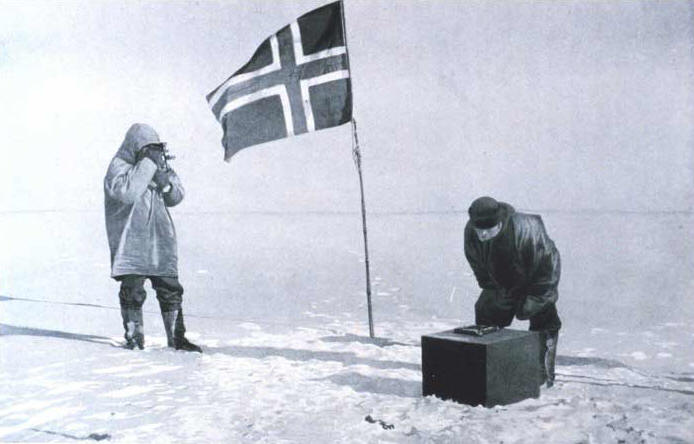 |
Roald Amundsen reached the South Pole |
| December 14, 1911 | |
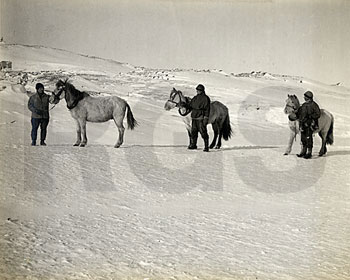 |
the Terra Nova Expedition |
| 1910-1913 | |
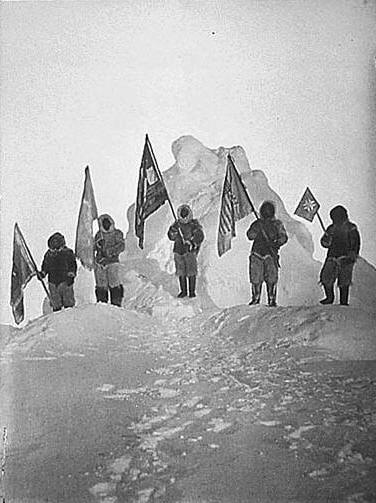 |
Robert Peary, Matthew Henson, Oatah, Egingwah, Seegloo, and Ookeah reached the geographic North Pole |
| April 6, 1909 | |
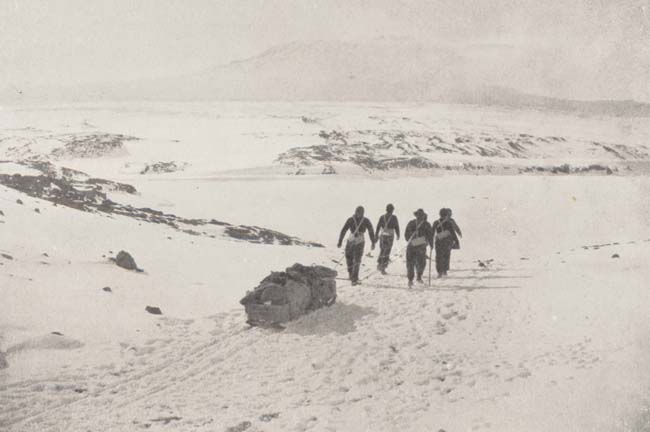 |
the Nimrod Expedition |
| 1908-1909 | |
|
○
|
the Scouting movement |
| 1907 | |
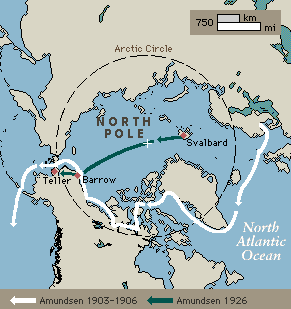 |
Roald Amundsen traversed the Northwest Passage between the Atlantic and Pacific Oceans |
| 1906 | |
|
○
|
the Hubbard Medal |
| 1906 | |
|
○
|
the Explorers Club is an international multidisciplinary professional society formed by the survivors of Frederick Cook's 1894 Arctic expedition. The Society is dedicated to the advancement of field research and the ideal that it is vital to preserve the instinct to explore |
| 1904 | |
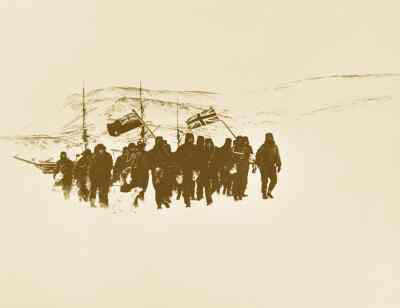 |
the Discovery Expedition |
| 1901-1904 | |
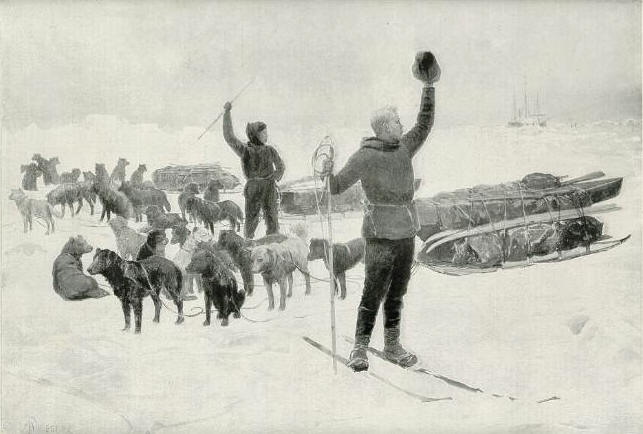 |
Fridtjof Nansen crossed the Arctic ocean and almost reached the North Pole by allowing the Fram to drift north through the sea ice |
| 1893-1896 | |
|
○
|
Fridtjof Nansen succeeded in crossing the Greenland icefield on skis from east to west with Otto Sverdrup, Olaf Dietrichson, Kristian Kristiansen Trana, Samuel Balto and Ole Nielsen Ravna |
| 1888 | |
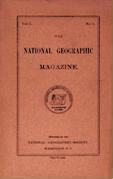 |
the National Geographic Magazine |
| 1888 | |
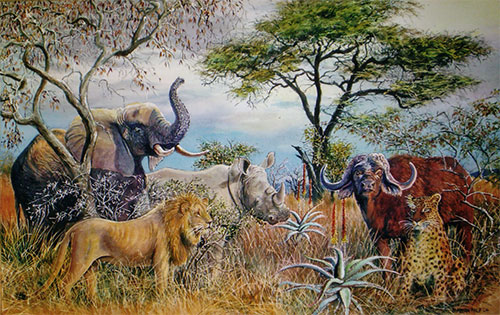 |
Safaris |
| late 19th century | |
|
○
|
portable stoves |
| late 1880s | |
|
○
|
the First International Polar Year |
| 1882-1883 | |
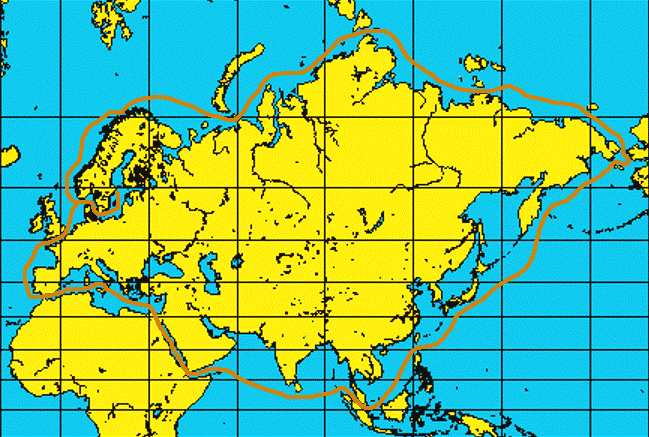 |
Adolf Erik Nordenskiöld circumnavigated Eurasia, being the first to make the whole length of the Northeast passage |
| 1878 | |
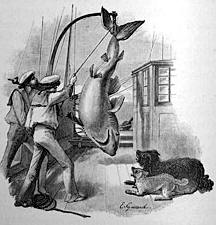 |
the Challenger expedition |
| 1870-1872 | |
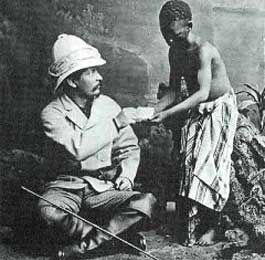 |
Henry Morton Stanley was sent to find the Scottish missionary and explorer David Livingstone in Africa |
| 1869 | |
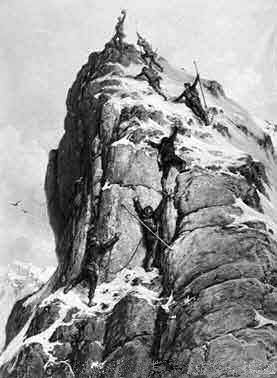 |
the Matterhorn was scaled by Edward Whymper and his party |
| 1865 | |
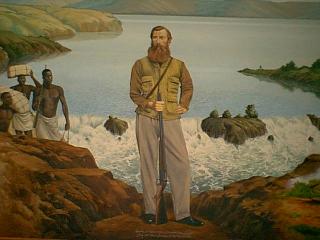 |
John Hanning Speke found the Nile flowing out of Lake Victoria |
| 1862 | |
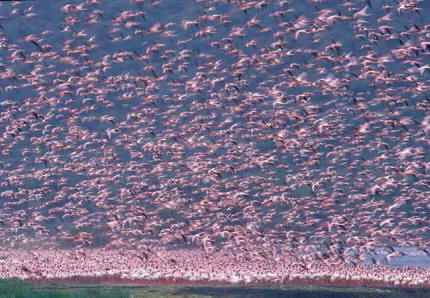 |
Burton and Speke's exploration of the lakes of central Africa |
| 1856-1860 | |
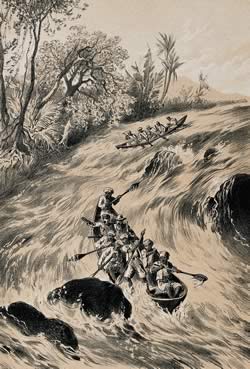 |
David Livingstone's journey across Africa |
| 1852-1856 | |
 |
the Franklin Expedition |
| 1845-1848 | |
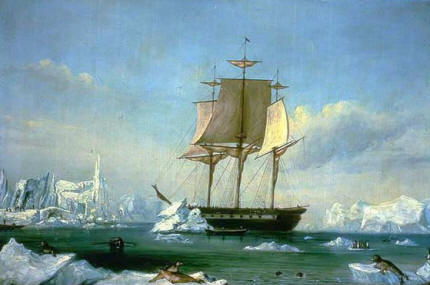 |
the United States Exploring Expedition |
| 1838-1842 | |
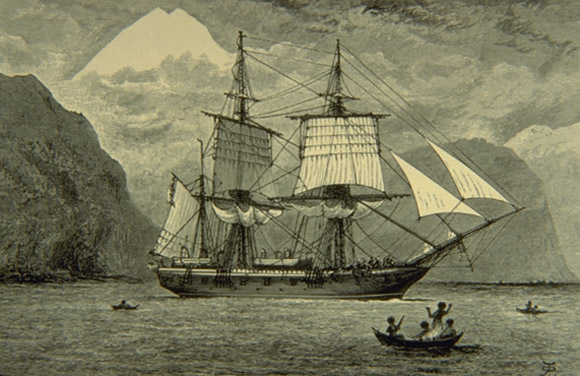 |
the Voyage of the Beagle |
| 1831-1836 | |
|
○
|
the Royal Geographical Society |
| 1830 | |
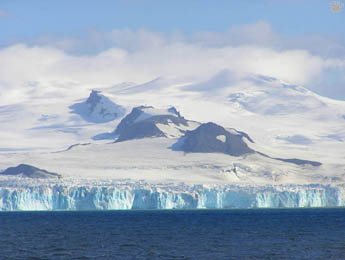 |
Fabian Gottlieb von Bellingshausen discovered the Antarctic mainland |
| January 28, 1820 | |
|
○
|
Mountain men were trappers and explorers that roamed the Rocky Mountains |
| 1810-1840s | |
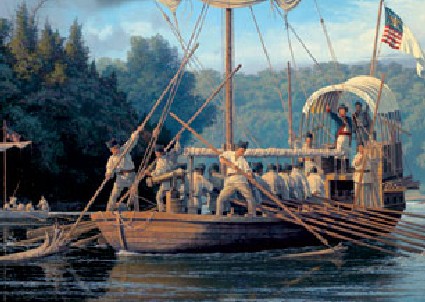 |
the Lewis and Clark expedition |
| 1804-1806 | |
|
○
|
the summit of the Großglockner was reached by Martin and Sepp Klotz, along with two other carpenters, and even a clergyman from Dölsach named Horasch |
| July 28, 1800 | |
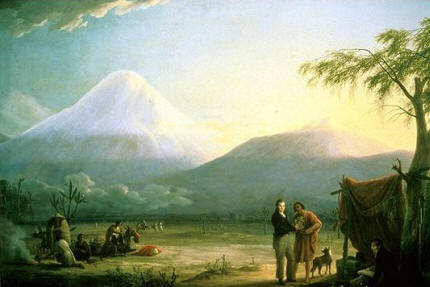 |
Alexander von Humboldt's Latin American expedition |
| 1799-1804 | |
 |
on the recommendation of Scottish physician James Lind sailors in the British navy are given lime juice to prevent scurvy |
| 1795 | |
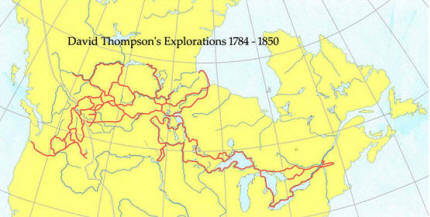 |
David Thompson explored and mapped the country west of Hudson Bay and Lake Superior, across the Rocky Mountains to the headwaters of the Columbia River and down the Columbia to the Pacific Ocean |
| 1792-1812 | |
 |
Mutiny on the Bounty |
| 1789 | |
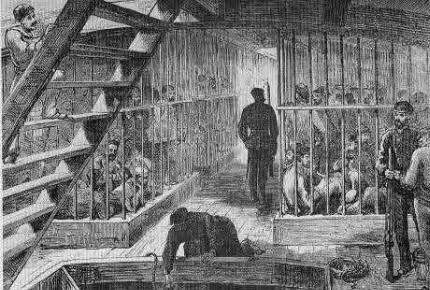 |
Captain Arthur Phillip founded the first permanent European settlement in Australia |
| January 26, 1788 | |
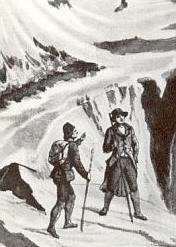 |
the first recorded ascent of Mont Blanc was by Jacques Balmat and the doctor Michel Paccard. This climb, initiated by Horace-Bénédict de Saussure, who gave a reward for the successful ascent, traditionally marks the start of modern mountaineering |
| August 8, 1786 | |
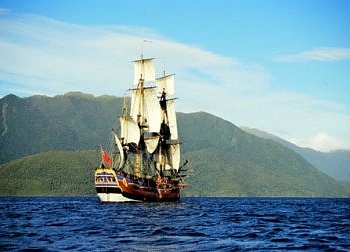 |
James Cook landed at Botany Bay on his first circumnavigation |
| April 29, 1770 | |
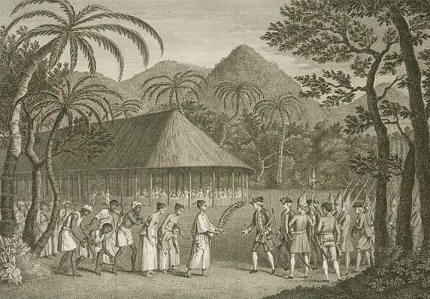 |
Samuel Wallis sighted Tahiti and is considered the first European visitor to the island |
| June 18, 1767 | |
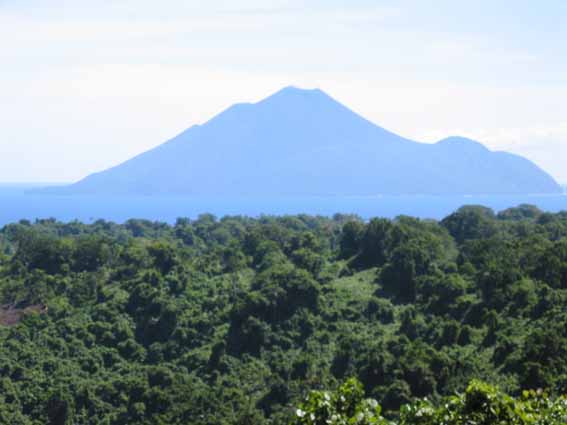 |
Louis-Antoine de Bougainville undertook the first French circumnavigation |
| 1766-1769 | |
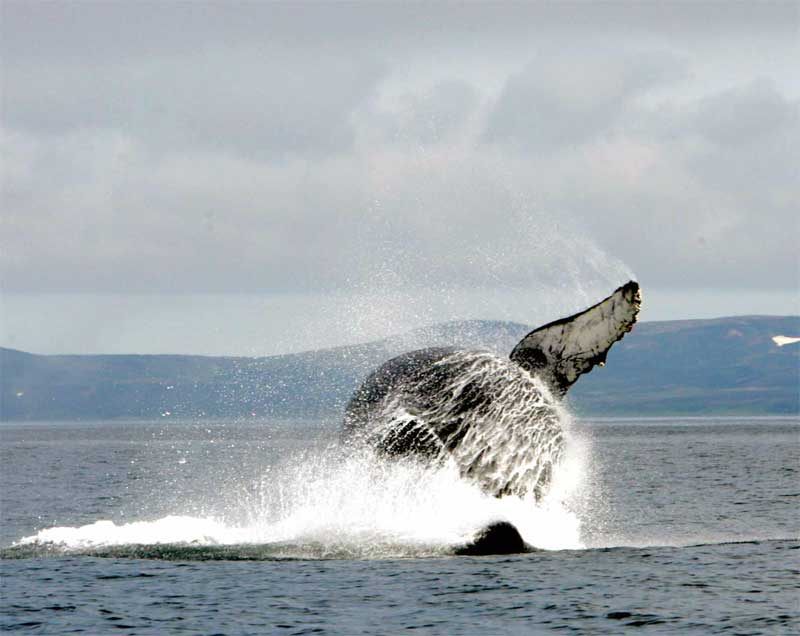 |
on the Second Kamchatka expedition Vitus Bering discovered the Aleutian Islands |
| 1733-1741 | |
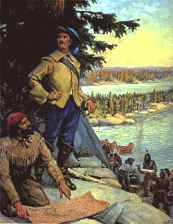 |
Pierre Gaultier de Varennes, sieur de La Vérendrye's explorations to find a route to the Western Sea |
| 1731-1744 | |
|
○
|
the sextant |
| 1730 | |
|
○
|
the chronometer |
| 1730 | |
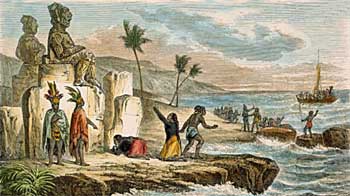 |
Jakob Roggeveen encountered Easter Island on Easter Sunday |
| April 5, 1722 | |
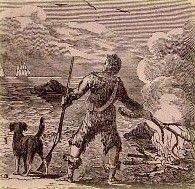 |
Alexander Selkirk spent a solitary residence on Juan Fernández |
| 1704-17009 | |
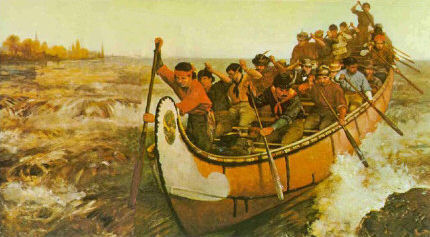 |
voyageurs |
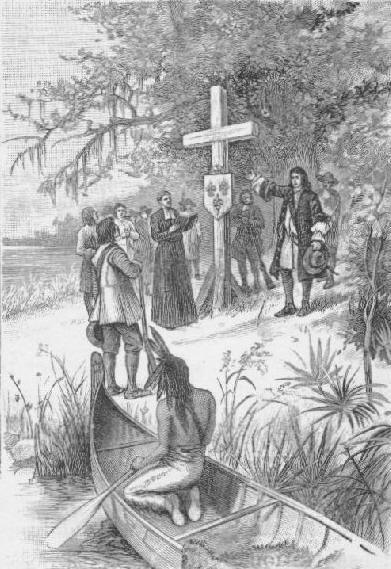 |
René-Robert Cavelier, Sieur de La Salle navigated the Great Lakes by sailing ship and canoed down the Mississippi River |
| 1679, 1682 | |
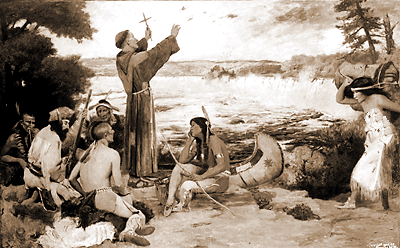 |
Louis Hennepin discovered the Niagara Falls |
| 1677 | |
 |
Rupert's Land was originally owned by the Hudson's Bay Company |
| 1670 | |
|
○
|
the French East India Company |
| 1664 | |
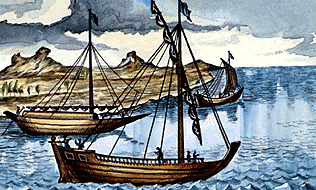 |
Semyon Dezhnev discovered the Anian Strait between Asia and Alaska |
| 1648 | |
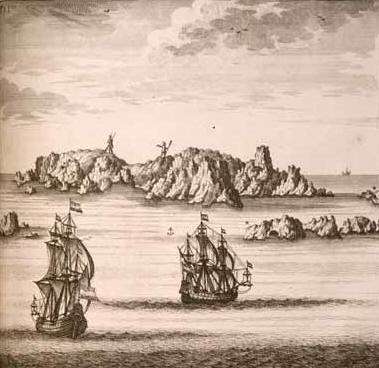 |
Abel Tasman reached New Zealand |
| 1642 | |
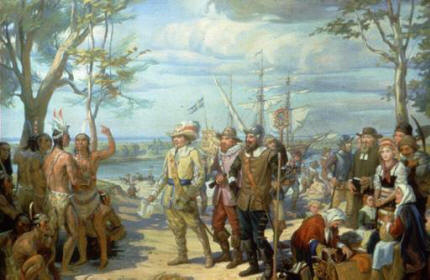 |
Peter Minuit purchased the island of Manhattan from the Canarse Native Americans with trinkets valued at about $24 |
| May 24, 1626 | |
|
○
|
New England |
| 1620-1788 | |
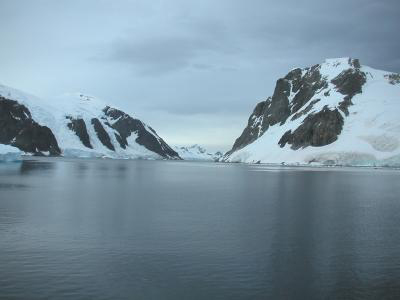 |
Jacob Le Maire and Willem Schouten rounded Cape Horn after discovering the Le Maire Strait |
| 1616 | |
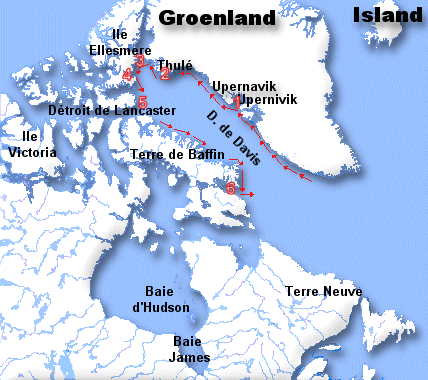 |
William Baffin discovered Lancaster Sound at the end of the Bay named after him |
| 1616 | |
|
○
|
New Netherland |
| 1614-1674 | |
 |
Henry Hudson explored the bay that now bears his name on his ship the Discovery, after having sailed up Hudson river a year earlier on an expedition for the Dutch East India Company |
| 1610 | |
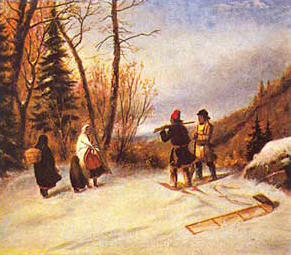 |
coureurs de bois |
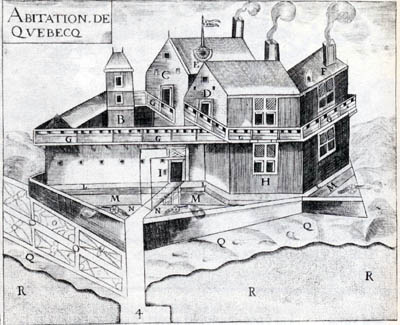 |
Samuel de Champlain landed at the "point of Quebec" and set about fortifying the area, establishing the first permanent European settlement in what today is Canada |
| July 3, 1608 | |
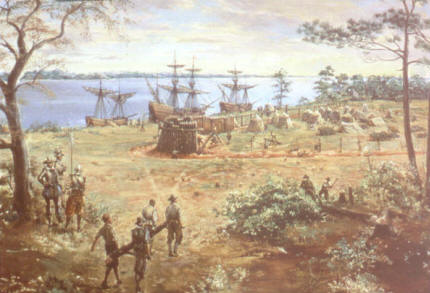 |
Captain John Smith established the first permanent English settlement in North America the Virginia Colony at Jamestown |
| May 13, 1607 | |
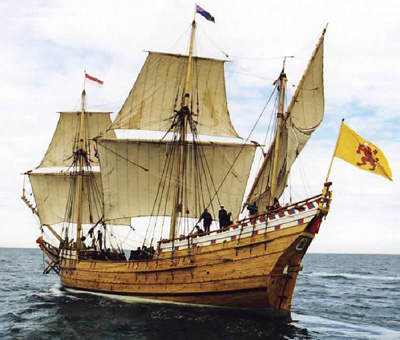 |
Willem Janszoon made the first recorded European landfall on the Australian continent after being sent from Bantam in the Dutch East Indies to search for New Guinea. He made a landfall at the western shore of Cape York in Queensland in 1606, believing it still to be a part of New Guinea |
| 1606 | |
|
○
|
the Dutch East India Company |
| March 20, 1602 | |
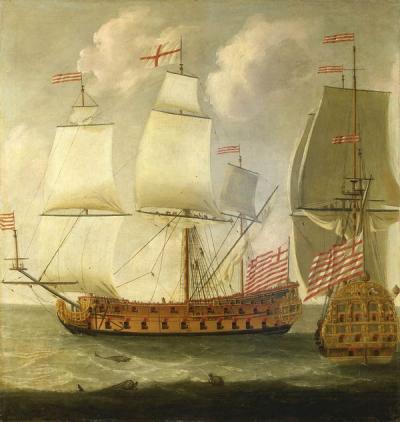 |
the British East India Company |
| 1600 | |
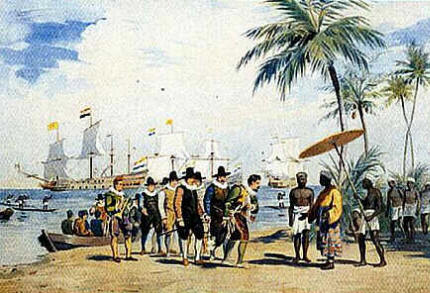 |
Cornelis de Houtman discovered a new sea route from Europe to Indonesia and managed to begin the Dutch spice trade |
| 1595 | |
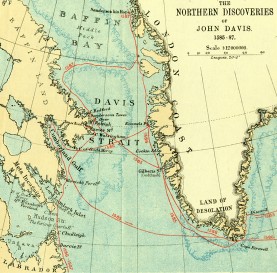 |
John Davis's expeditions in search for a Northwest Passage |
| 1585-1587 | |
 |
the first English colony was established at St. John's in Newfoundland by Sir Humphrey Gilbert, soon after followed the foundation of colonies on Roanoke Island, Virginia in 1587, Popham in 1607, Cuper's Cove in 1610, Plymouth in 1620, and the Massachusetts Bay Colony in 1632 |
| 1583 | |
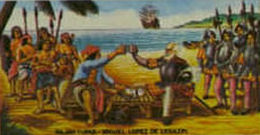 |
Miguel López de Legazpi established the first spanish colony in the Philippine Islands |
| 1565 | |
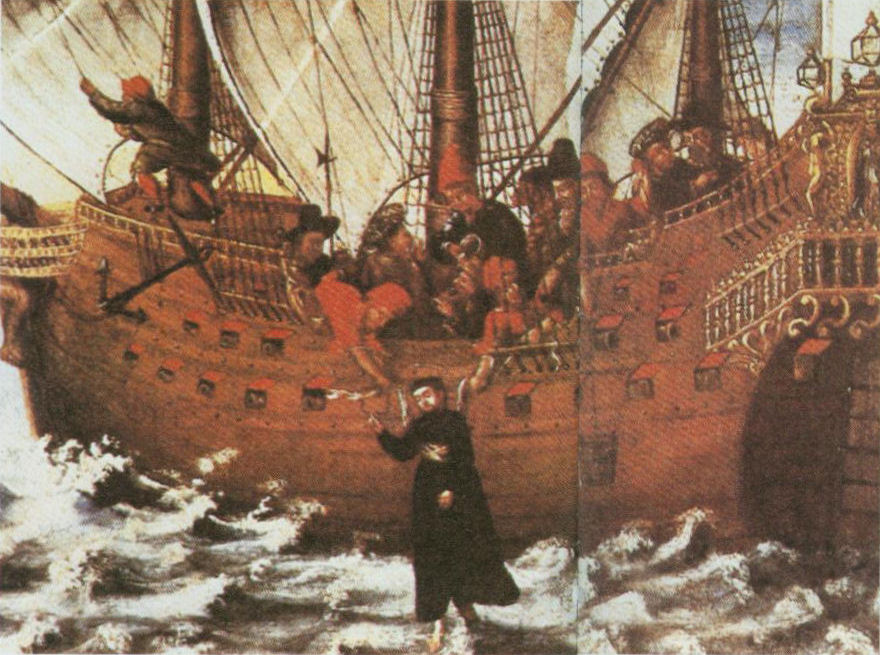 |
Francis Xavier reached Japan but it was not until August 15 that he went ashore at Kagoshima |
| July 27, 1549 | |
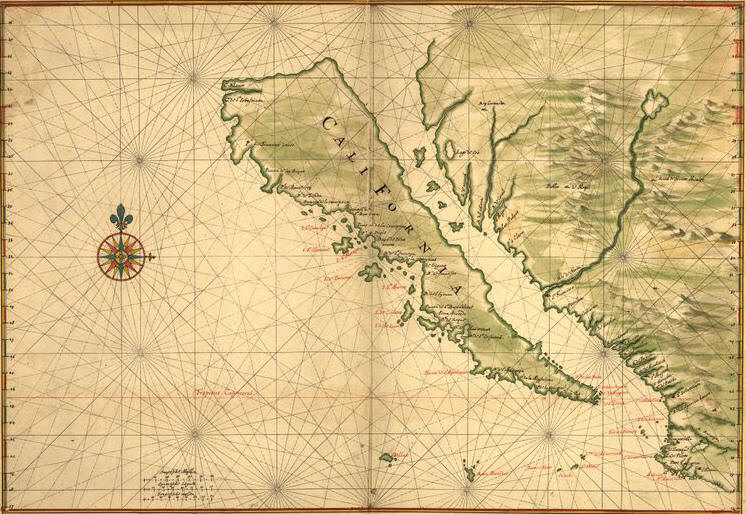 |
Juan Rodríguez Cabrillo was the first European explorer to navigate the coast of present day California in the United States |
| 1542-1543 | |
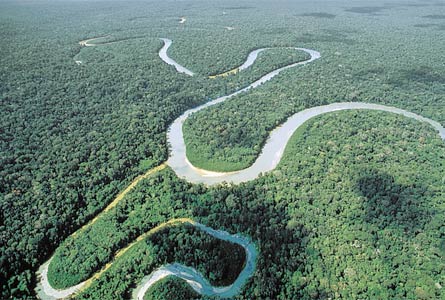 |
Francisco Orellana and Gonzalo Pizarro expedition to find El Dorado |
| 1541 | |
 |
|
| 1537 | |
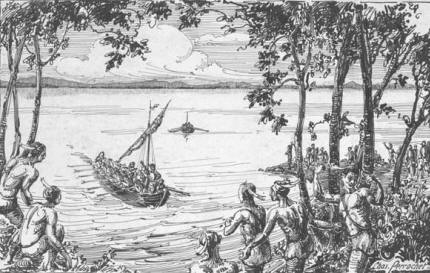 |
Jacques Cartier sailed up the the St. Lawrence on his second voyage to the new world |
| 1535-1536 | |
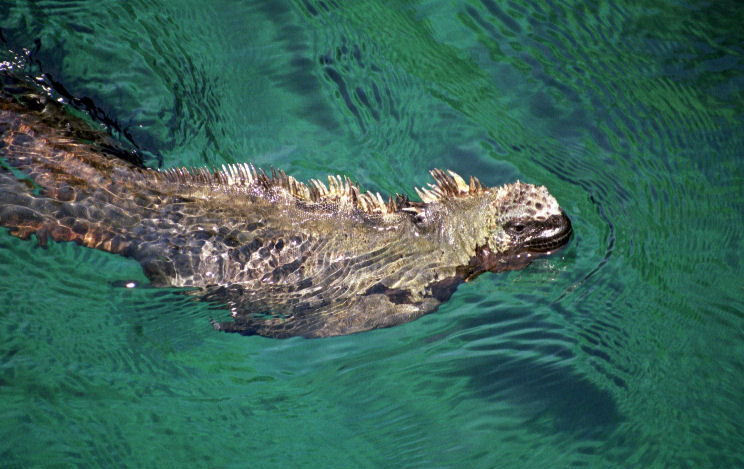 |
Fray Tomás de Berlanga the fourth Bishop of Panama, sailed to Peru to settle a dispute between Francisco Pizarro and his lieutenants. De Berlanga's vessel drifted off course when the winds diminished, and his party reached the Galápagos Islands |
| March 10, 1535 | |
|
○
|
Diego de Almagro took possession of the Kingdom of Chile for Spain |
| 1535 | |
|
○
|
New Spain |
| 1535-1821 | |
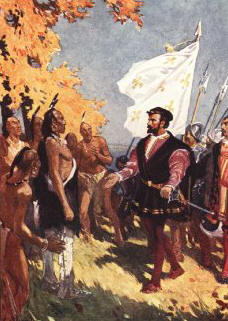 |
New France was the area colonized by France in North America during a period extending from the exploration of the Saint Lawrence River, by Jacques Cartier in 1534, to the cession of New France to Spain and to the Kingdom of Great Britain under the Treaty of Paris ending the French and Indian war/ Seven Years' war |
| 1534-1763 | |
|
○
|
Francisco Pizarro conquered the Inca Empire for Spain |
| 1532 | |
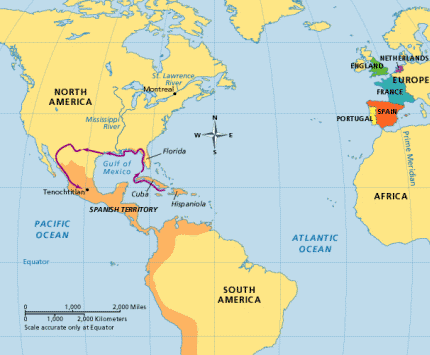 |
Álvar Núñez Cabeza de Vaca's exploration of southern North America |
| 1528-1537 | |
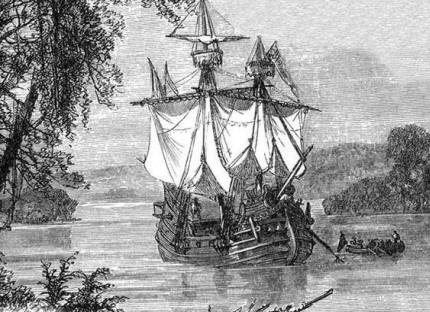 |
Giovanni da Verrazano became the first European to explore the Atlantic coast of North America between South Carolina and Newfoundland when he was sent by King Francis I of France to explore the region for a route to the Pacific Ocean |
| 1524 | |
|
|
Juan Sebastián Elcano circumnavigated the globe |
| 1522 | |
|
○
|
Hernan Cortes conquered the Mexica/Aztec Empire for Spain |
| 1521 | |
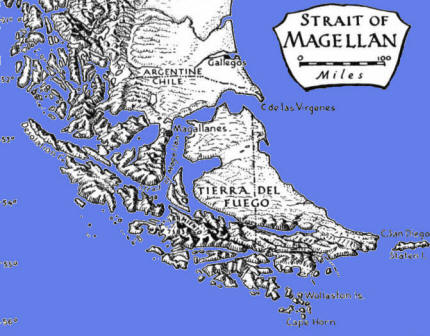 |
Ferdinand Magellan reached Cape Virgenes and discovered the strait now named after him |
| October 21, 1520 | |
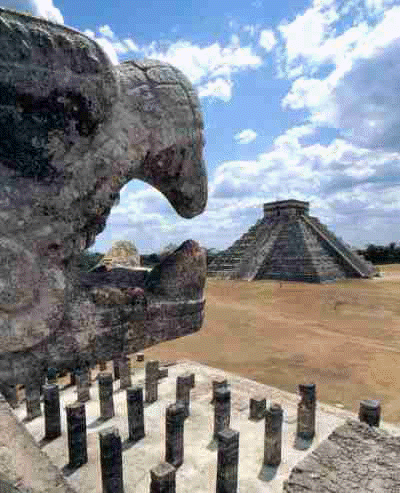 |
Francisco Hernández de Córdoba discovered Yucatán |
| 1517 | |
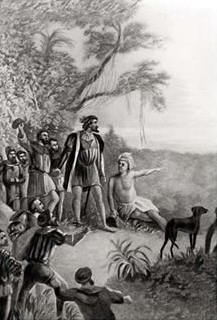 |
Vasco Núñez de Balboa reached the summit of the mountain range along the Chucunaque River on the Isthmus of Panama and became the first European to see the Pacific |
| September 25, 1513 | |
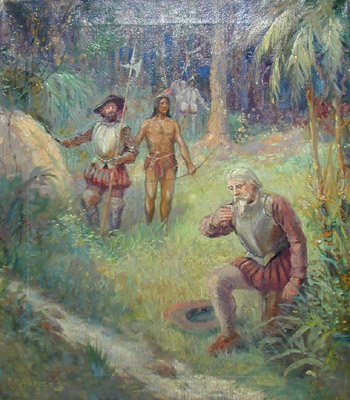 |
Juan Ponce de León set foot in Florida |
| April 2, 1513 | |
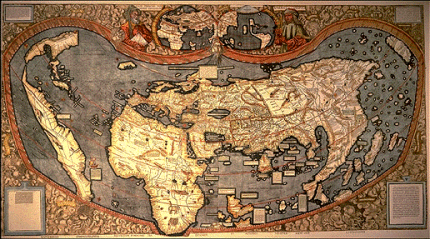 |
Martin Waldseemüller produced a world map on which he named the new continent "America" after Vespucci's first name, Amerigo |
| 1507 | |
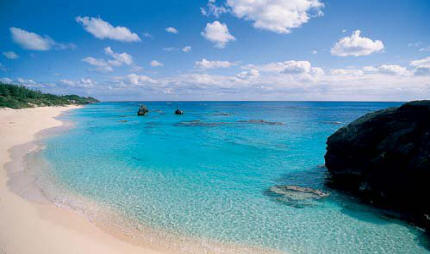 |
Juan de Bermudez discovered the Bermuda islands |
| 1503 | |
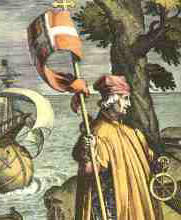 |
Amerigo Vespucci wrote in a letter to de' Medici that the land masses he had explored with Alonso de Ojeda and Gonçalo Coelho were much larger than anticipated and unlike the Asia described by earlier Europeans and, therefore, must be a New World. In 1499 he had discovered the mouth of the Amazon and the Orinoco River, while in 1502 he sailed as far south as Patagonia |
| 1502 | |
 |
João da Nova discovered Ascension Island and Saint Helena |
| 1501, 1502 | |
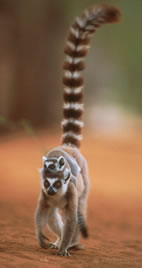 |
Diego Dias became the first European to set foot on Madagascar when his ship, bound for India, blew off course |
| 1500 | |
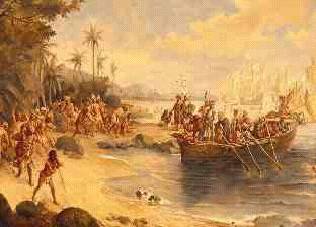 |
Pedro Álvares Cabral landed on the coast of Brazil |
| April 23, 1500 | |
|
○
|
Alonso de Ojeda journeyed to the New World with three vessels and accompanied by the cosmographer Juan de la Cosa and Amerigo Vespucci. In a little over three weeks he sighted the mainland near the mouth of the Orinoco River, and after landing on Trinidad and at other places, discovered a harbour which he called Venezuela (little Venice), from its resemblance to the bay of Venice |
| 1499-1500 | |
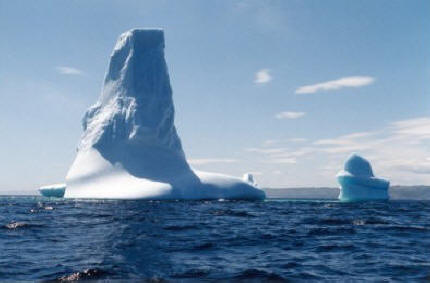 |
João Fernandes Lavrador charted the coasts of Southwestern Greenland and of adjacent Northeastern North America around |
| 1498 | |
|
|
Vasco da Gama landed at Calicut |
| May 20, 1498 | |
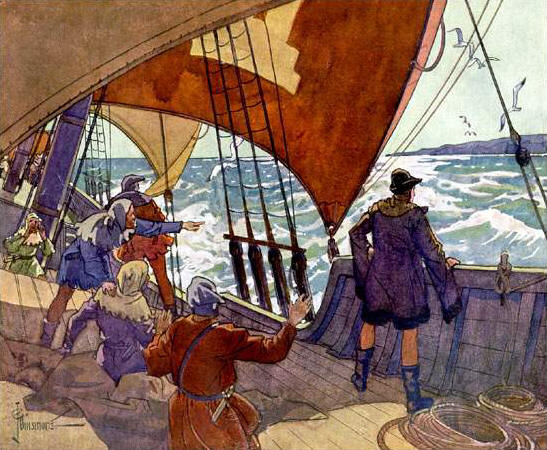 |
John Cabot landed on the coast of Newfoundland |
| June 24, 1497 | |
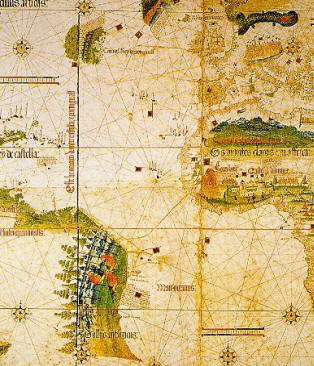 |
the Treaty of Tordesillas divided the world outside of Europe in an exclusive duopoly between the Spanish and the Portuguese along a north-south meridian 370 leagues (1770 km; 1100 miles) west of the Cape Verde Islands |
| June 7, 1494 | |
 |
on his second voyage Christopher Columbus founded the first Spanish colony in the New World on the island of Hispaniola |
| 1493 | |
|
○
|
|
| 1493 | |
|
○
|
|
| 1493 | |
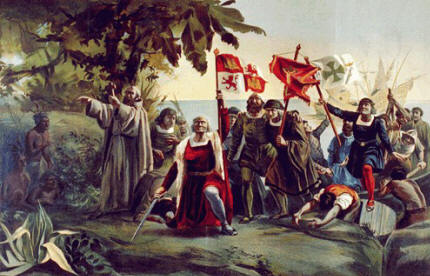 |
Christopher Columbus landed on the Bahamas |
| October 12, 1492 | |
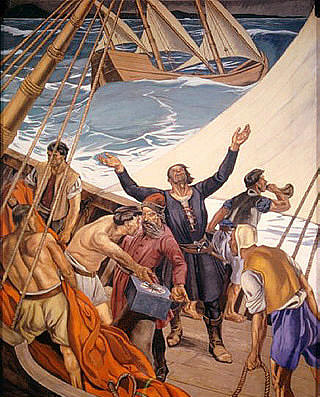 |
Bartolomeu Dias turned the Cape of Good Hope |
| 1488 | |
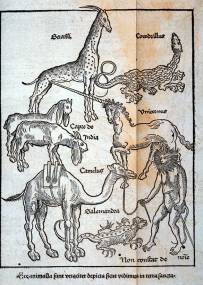 |
Bernhard von Breidenbach's account of his journey to Jerusalem |
| 1486 | |
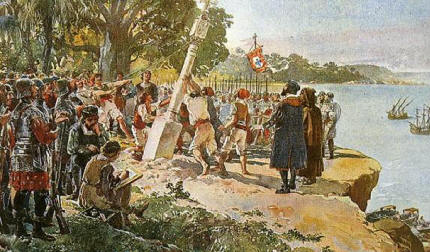 |
Diogo Cão reached the mouth of the Congo River and sailed down the African west coast as far south as what today is Angola |
| 1482 | |
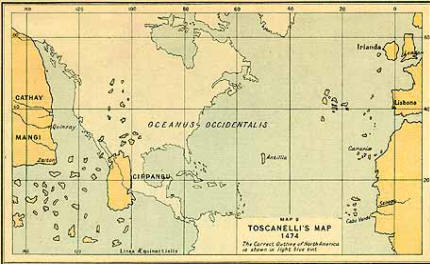 |
Toscanelli s world map |
| 1474 | |
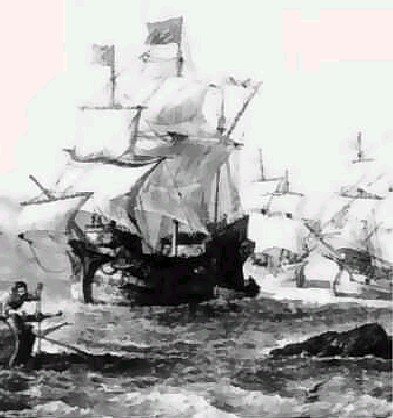 |
Didrik Pining is said to have landed on Newfoundland and Labrador together with Hans Pothorst, also from Hildesheim, and the Portuguese explorers João Vaz Corte-Real and Álvaro Martins |
| 1473 | |
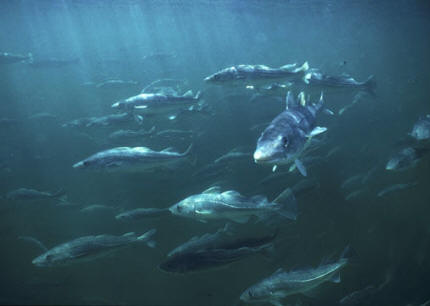 |
João Vaz Corte-Real discovered Terra Nova do Bacalhau on his explorations in the Northwest Atlantic |
| 1470 | |
|
○
|
Alvise Cadamosto became the first European to reach the Cape Verde Islands |
| 1456 | |
|
○
|
Nuno Tristão's exploration of the West African coast |
| 1441-1446 | |
|
|
Gil Eanes discovered a passable route around Cape Bojador |
| 1434 | |
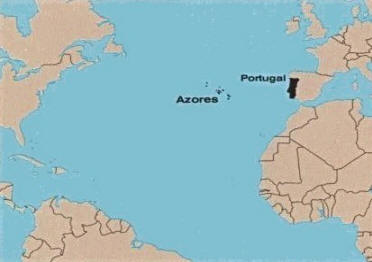 |
Diogo de Silves discovered the Azores |
| 1427 | |
|
○
|
Niccolò Da Conti's travels to India and South-East Asia |
| 1419-1444 |
|
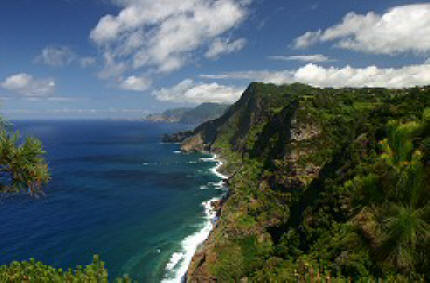 |
João Gonçalves Zarco discovered the Madeira Islands |
| 1419, 1420 | |
|
○
|
the Portuguese Armada managed to conquer the North African trade centre Ceuta, thus founding the Portuguese Empire: the earliest and longest lived of the western european colonial empires (1415-1999) |
| August 21, 1415 | |
|
○
|
Ibn Battuta's journeys across Africa and Asia |
| 1325-1352 | |
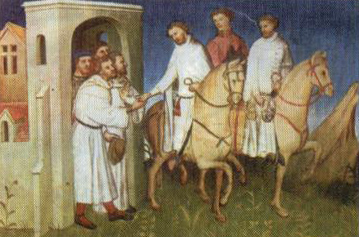 |
the voyages of Niccolò, Maffeo and Marco Polo |
| late 13th century | |
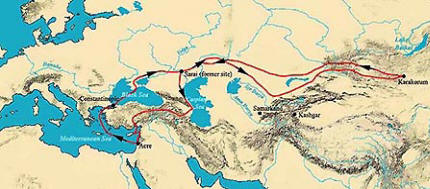 |
European missions to the Mongols led by Giovanni da Pian del Carpine, Ascelin, André de Longjumeau and William of Rubruck |
| 1245, 1246, 1248, 1253 | |
|
○
|
Christian missions |
|
○
|
Leif Ericson sailed to and landed in North America, naming what is known today as Baffin Island, Helluland, what is known today as Labrador, Markland and what is known today as Newfoundland, Vínland |
| 1000 | |
|
○
|
Bjarni Herjólfsson sighted the mainland of North America when he was blown off course by a storm on his voyage to Greenland |
| 986 | |
|
○
|
Saint Brendan sailed to the Hebrides, the Canary Islands, the Azores and Iceland |
| 530 | |
|
○
|
Zhang Qian opened up Chinese trade and helped begin the Silk Road on his travels to the steppes of Central Asia |
| 2nd century bc | |
|
○
|
Pytheas of Massilia circumnavigated Great Britain |
| 325 bc | |
|
○
|
Hanno the Navigator explored the Atlantic coast of Africa |
| 570 bc |